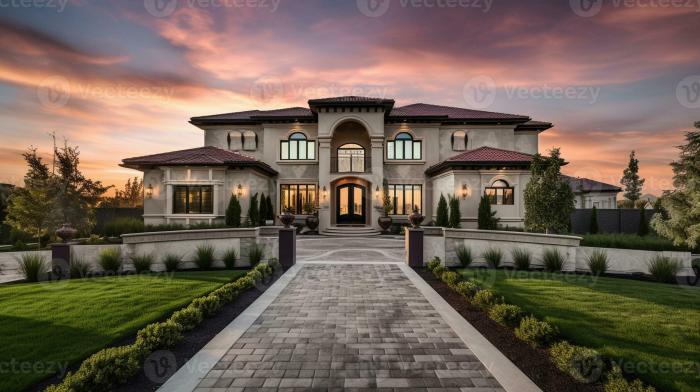
Luxury estate fractional sales offer a unique opportunity for individuals to invest in high-end properties without bearing the full financial burden. This innovative approach to ownership allows multiple buyers to share the expenses and enjoy the benefits of luxurious living, making it more accessible than ever.
By exploring this investment model, potential buyers can discover the advantages it provides, such as lower costs, flexibility in usage, and access to exclusive estates. Understanding the legal intricacies and market trends surrounding luxury estate fractional sales is key to making informed decisions in this enticing sector.
Understanding Luxury Estate Fractional Sales
Luxury estate fractional sales refer to a unique approach to property ownership that allows multiple individuals to share ownership of a high-value real estate asset. This model is designed to make luxury living more accessible by reducing the financial burden typically associated with owning a luxury property outright. In essence, fractional ownership enables investors to purchase a portion of a property, allowing them to enjoy its amenities and benefits, while sharing costs such as maintenance, taxes, and insurance.Investing in fractional ownership of luxury estates offers several benefits.
First, it significantly lowers the entry point for acquiring a luxury asset, making it feasible for more investors. Additionally, it provides access to high-end properties that may otherwise be unattainable. Owners can enjoy the property for a set number of weeks or months each year, allowing them to experience luxury living without the full financial commitment. Moreover, fractional ownership can be an excellent investment strategy, as properties in prime locations typically appreciate over time.When considering legal aspects, fractional sales of luxury properties involve various regulations, including the formation of an LLC or partnership to manage the shared ownership.
Legal agreements Artikel the terms of use, maintenance responsibilities, and financial obligations of all owners. It is crucial for all parties involved to understand their rights and responsibilities to avoid potential disputes in the future.
Real Estate Investment Strategies
When diving into luxury estate fractional sales, it’s essential to employ effective investment strategies. Various approaches can be utilized, including:
- Diversification: Investing in multiple fractional properties can mitigate risk and spread potential returns across different markets.
- Market Research: Conducting thorough research to identify high-demand luxury locations enhances the likelihood of property appreciation.
- Long-Term Holding: Maintaining ownership over several years can yield significant returns, particularly in upscale neighborhoods where property values are on the rise.
Successful investment models in fractional ownership can be seen in companies like Pacaso and Equity Estates, which allow buyers to co-own luxury homes in desirable locations. These companies manage the properties, making it easier for owners to enjoy their investment without the hassles of traditional property management. Investing in luxury fractional real estate comes with its set of risks and rewards.
While there is potential for high returns, investors must be aware of market fluctuations, maintenance costs, and the liquidity of their investment, as selling fractional ownership shares can be more complex than traditional real estate sales.
Trends in the Real Estate Market
Current trends in the luxury real estate market are influenced by various factors, including economic conditions, consumer preferences, and lifestyle changes. One notable trend is the increasing interest in sustainable and eco-friendly properties. Buyers are becoming more conscious of environmental impacts, leading developers to focus on green building practices and energy-efficient technologies.Demographic shifts, particularly among millennials and Generation Z, are also impacting luxury estate fractional sales.
Younger buyers are prioritizing experiences over ownership, making fractional ownership an appealing option as it allows them to enjoy luxury living without the long-term commitment of full ownership.Technological advancements are significantly shaping the real estate landscape. Virtual tours, drone photography, and advanced analytics tools are enhancing the buying experience, enabling potential buyers to make informed decisions from the comfort of their home.
The Role of Smart Homes in Luxury Real Estate
Smart home technology is becoming increasingly integrated into luxury estate fractional sales. Home automation systems, security features, and energy management solutions enhance the overall living experience and attract buyers looking for modern conveniences. Smart home features not only improve the appeal of luxury properties but also add value by offering comfort and security. Examples of popular smart home technologies include smart thermostats, automated lighting systems, and smart security cameras, which can be remotely controlled via smartphones.As prospective buyers prioritize modern living experiences, luxury properties equipped with advanced smart technology are more likely to stand out in a competitive market.
Commercial Real Estate and Luxury Fractional Sales
The intersection of commercial real estate and luxury estate fractional sales presents unique opportunities for investors. Fractional ownership can apply to commercial properties such as luxury hotels, resorts, and corporate vacation homes, allowing multiple stakeholders to share the investment and operational costs.Successful case studies, such as fractional ownership models used by luxury hotel chains, demonstrate the potential for generating revenue while providing co-owners access to premium accommodations.
Investment differences between residential and commercial fractional sales often revolve around the complexity of managing a commercial property and the associated regulatory requirements. Investors typically see varied returns, with commercial properties often offering longer lease terms and consistent cash flow compared to residential properties.
The Market for Luxury Homes
Luxury homes are characterized by their high-quality construction, premium locations, and exclusive amenities. In the context of fractional sales, these characteristics appeal to buyers seeking a shared investment in a property that promises exceptional living experiences.Location significantly impacts the value of luxury estate fractional properties. Prime locations in bustling cities or serene coastal areas can command a premium, making them attractive options for fractional ownership.
Comparing luxury home market trends with traditional real estate markets reveals a greater resilience in luxury markets during economic downturns. Luxury properties often retain their value better than their traditional counterparts, attracting discerning investors even in challenging times.
Luxury Real Estate Marketing Techniques

Effective marketing strategies for luxury estate fractional sales must resonate with affluent buyers. Some key techniques include:
- High-Quality Visuals: Utilizing professional photography and videography to showcase properties can significantly enhance appeal.
- Targeted Advertising: Leveraging digital platforms to target specific demographics ensures that marketing efforts reach the right audience.
- Storytelling: Crafting compelling narratives around properties helps buyers connect emotionally, making them more likely to invest.
Digital marketing plays a crucial role in promoting luxury properties. Social media platforms, search engine optimization, and targeted online advertising can effectively reach potential buyers. Branding and storytelling are vital in the luxury real estate market. Establishing a strong brand identity and weaving stories around properties not only captures attention but also builds trust and authenticity, essential for closing high-value sales.
Financing Options for Fractional Luxury Estates
Several financing options are available for buyers in luxury fractional sales, including traditional mortgages, lines of credit, and specialized fractional ownership loans. Each option offers different benefits, allowing buyers to choose the best fit for their financial situation.Understanding how financing can affect investment returns is imperative. Leveraging financing can amplify returns if property values increase, but it can also pose risks if property values decline.
Financial institutions are increasingly recognizing the demand for fractional ownership models, leading to the development of tailored financing solutions that cater specifically to this niche market. This support enhances accessibility for buyers looking to invest in luxury fractional estates.
Outcome Summary
In conclusion, luxury estate fractional sales present a compelling option for those looking to invest in premium real estate while sharing the costs and responsibilities. By embracing this model, buyers can enjoy the lavish lifestyle associated with luxury properties, all while navigating the evolving landscape of real estate investments.
Clarifying Questions
What is fractional ownership in real estate?
Fractional ownership allows multiple individuals to buy shares in a property, enabling them to use it for a portion of the year while sharing costs.
How does fractional ownership affect property management?
Properties under fractional ownership typically have a management company that oversees maintenance and bookings, ensuring a hassle-free experience for owners.
What are the tax implications of fractional ownership?
Tax implications can vary based on property location and ownership structure, so it’s advisable to consult a tax professional for specific guidance.
Can fractional ownership apply to commercial properties?
Yes, fractional ownership can also be applied to commercial properties, allowing investors to share in the ownership and operational costs.
What financing options are available for fractional sales?
Financing options for fractional sales may include traditional mortgages, personal loans, or financing specifically designed for shared ownership structures.





